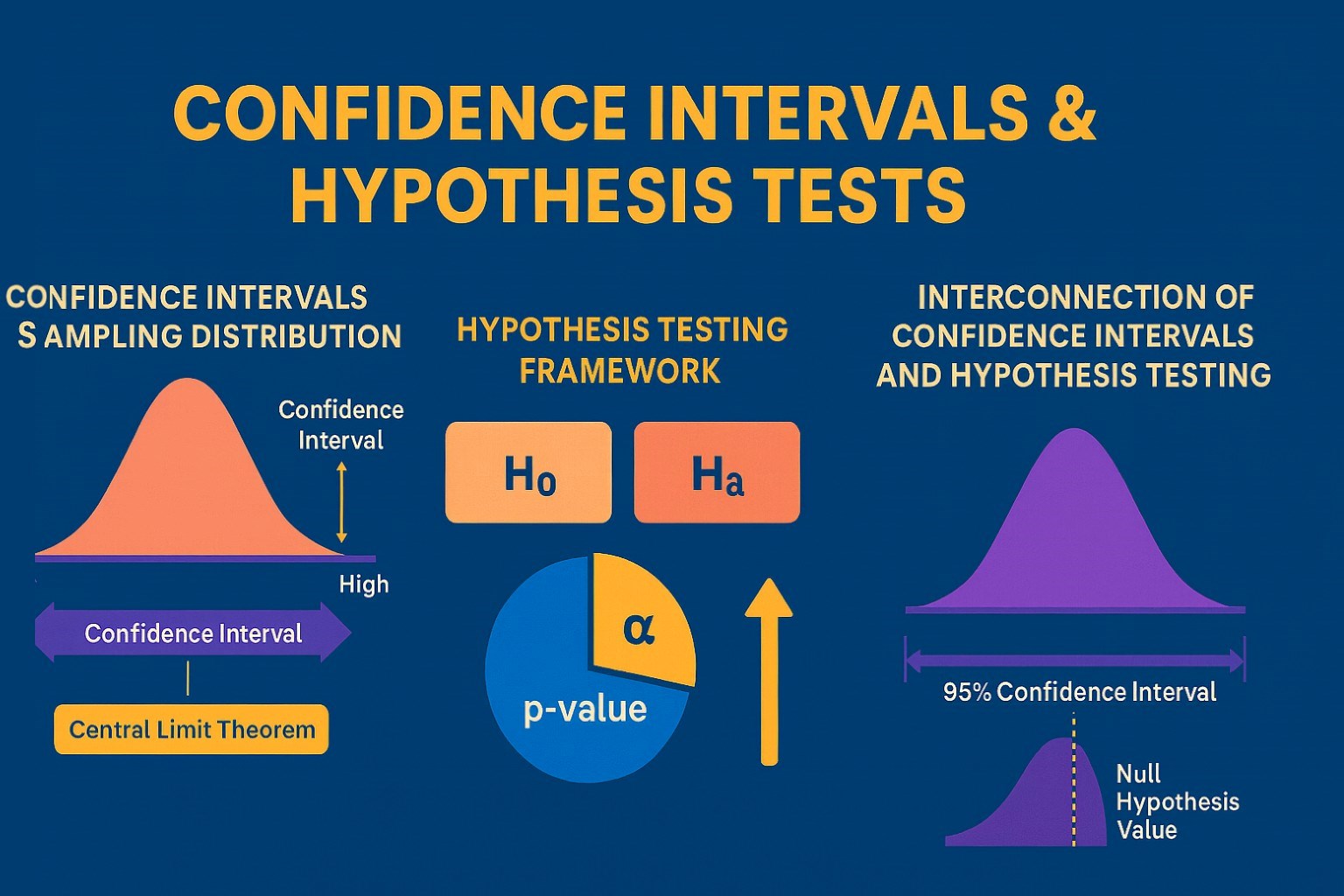Top Benefits of Project Management (PMP) Certification for Professionals and Employers

A career in Project Management, particularly with a Project Management Professional (PMP) certification, is demanding and highly rewarding due to several key factors. The increasing demand for PMP-certified professionals, projected job growth, and lucrative salary opportunities make it an attractive career choice.
According to the BLS, employment of project management specialists is projected to grow 6 percent from 2022 to 2032, faster than the average for all occupations. On average, over the decade, about 68,100 openings for project management specialists are projected each year.
Why PMP certification is demanding?
The Project Management Professional (PMP) certification is considered demanding due to several key reasons:
1. PMP certification is globally recognized and valued. It makes individuals stand out in the job market and opens doors to more challenging projects and advanced career opportunities.
2. The rigorous requirements for PMP certification, such as a significant amount of project management experience, formal training hours, and passing a comprehensive exam, demonstrate a high level of competency in project management.
3. The financial investment required for PMP certification, including course fees and exam costs, can be substantial.
4. Many employers in healthcare, pharmaceuticals, defense contracting, and financial services require or highly value PMP certification, further emphasizing its importance in the professional landscape.
What is PMP Certification?
The PMP certification, which stands for Project Management Professional, is a globally recognized credential offered by the Project Management Institute (PMI) that validates your project management skills. Earning a PMP shows you have the experience and knowledge to effectively lead teams, manage project resources, and ensure projects meet their goals. This certification is beneficial across various industries and can enhance your career opportunities in project management. If you're setting your sights on PMP certification, here are some key things to consider:
· Eligibility Requirements: PMI mandates a specific experience (usually 36 months with a bachelor's degree or 60 months with a high school diploma) and completion of approved training courses (35 hours).
· Exam Preparation: The PMP exam is challenging and requires dedicated studying. Factor in time to review project management fundamentals, delve into the PMBOK Guide and practice with sample questions.
· Continued Learning: PMP certification is valid for three years and requires renewal through ongoing professional development activities. Be prepared to stay updated on evolving project management practices.
By following these steps, you will be well on becoming a Project Management Professional.
Advantages of taking PMP certification
The PMP certification equips you with a comprehensive understanding of core project management concepts and tools as outlined in the Project Management Body of Knowledge (PMBOK Guide) by PMI. Here's a breakdown of what you'll learn:
Core Concepts:
Project Management Processes: You'll delve into the five process groups (Initiating, Planning, Executing, Monitoring & Controlling, Closing) and their ten knowledge areas (Project Integration, Scope, Schedule, Cost, Quality, Human Resource, Communication, Risk, Procurement, Stakeholder Management) that guide successful project execution.
Project Lifecycle: Gain a thorough understanding of the phases, from project initiation to planning, execution, monitoring and control, and finally, project closure.
Project Management Methodologies: The PMP explores various project management methodologies, such as Agile, Waterfall, and Earned Value Management (EVM), enabling you to choose the most suitable approach for different project types.
Risk Management is a crucial aspect of project management. You'll learn to identify, assess, prioritize, and mitigate potential project risks to ensure project success.
Tools and Techniques
Project Management Software: The PMP doesn't focus on specific software, but you'll gain exposure to various project management tools and techniques for scheduling, budgeting, resource allocation, communication, and risk management. The tools you can master are Jira, Asana, Basecamp, Scoro, Orchestra, ActiveCollab, etc.
Work Breakdown Structure (WBS): This essential tool for project planning breaks down the project deliverables into smaller, manageable tasks. You'll learn to create and utilize WBS effectively.
Gantt Charts and Network Diagrams are visual tools for depicting project schedules and task dependencies. They allow you to plan, track, and communicate project timelines effectively.
Critical Path Method (CPM): This technique identifies the most essential tasks of a project schedule, helping you prioritize and manage project timelines effectively.
Mastering these core concepts and tools will give you a strong foundation for successful project management across various industries, and it is a great advantage to pursue PMP certification.
Top Benefits of Project Management Professional (PMP) Certification
1. Global Acceptance: PMP certification is globally recognized, providing professionals with a respected credential.
2. Skill Enhancement: The certification equips individuals with new skills and knowledge, enhancing their capabilities as project managers.
3. Improved Project Management: PMP certification helps individuals become better project managers by instilling best practices and methodologies.
4. Higher Salary: Certified project managers typically earn better salaries compared to non-certified counterparts, reflecting the value placed on PMP certification in the job market. According to PMI, project managers without certification in the U.S. typically earn a median annual salary of $93,000, while those with PMP certification have a median wage of $130,000 per year—an increase of 44% compared to their noncertified counterparts.
5. Networking Opportunities: PMP certification allows professionals to network with a global community of project management experts, facilitating knowledge sharing and career growth.
6. Career Advancement: Holding a PMP certification opens doors to more challenging projects, higher-paying roles, and better job opportunities, giving professionals a competitive edge.
7. Organizational Benefits: Organizations benefit from PMP-certified professionals through increased efficiencies, reduced risks, improved success rates, and standardized project management techniques that enhance overall business performance
Who can do PMP Certification?
Educational Background
· Bachelor's Degree: If you hold a four-year college degree (or global equivalent), you'll need at least 36 months of project management experience within the last eight years.
· High School Diploma: With a high school diploma or equivalent, you'll need at least 60 months of project management experience within the last eight years.
· Project Management Training: While not strictly mandatory, PMI highly recommends completing 35 hours of project management education from a PMI Registered Education Provider (R.E.P). This training can help solidify your understanding of project management concepts and better prepare you for the exam.
· CAPM Certification (Optional): The Certified Associate in Project Management (CAPM) certification can fulfill the 35-hour training requirement. However, CAPM is a separate entry-level certification and doesn't directly qualify you for the PMP exam; it just satisfies the training prerequisite.
What is the average salary of PMP Employees?
As of January 2024, PMI reported that the median annual salary for a PMP-certified professional in the US is $123,000, a 32% increase from the median of $93,000 for non-certified colleagues.
In conclusion, the PMP certification is a cornerstone for professionals seeking to elevate their project management skills and for employers aiming to drive organizational success. By fostering advanced expertise, global recognition, and standardized practices, PMP certification enhances project outcomes and boosts efficiency, competitiveness, and adaptability to change. Embracing PMP certification signifies a commitment to excellence, continuous improvement, and staying ahead in today's dynamic business landscape, making it a valuable investment for professionals and employers.
Take the next step towards your professional goals in Advanced Application Life Cycle Management
Don't hesitate to talk with our course advisor right now
Receive a call
Contact NowMake a call
+1-732-338-7323Related blogs on Advanced Application Life Cycle Management to learn more

What Companies Expect from Product Managers in 2025: Skills, Tools, and Trends
Explore what companies expect from Product Managers in 2025, including essential skills, tools, certifications, and salary trends. Learn how to stay ahead in a rapidly evolving, tech-driven product management landscape.

Advanced Application Life Cycle Management- The Best Way To Improve Product Quality
A package of software suites designed, developed and marketed by HP(Hewlett-Packard) called ‘Application Life Cycle Management’ or ‘ALM’ is used to accelerate the secure delivery of software applications. ALM targets to manage the core lifecycle of s
Latest blogs on technology to explore

From Student to AI Pro: What Does Prompt Engineering Entail and How Do You Start?
Explore the growing field of prompt engineering, a vital skill for AI enthusiasts. Learn how to craft optimized prompts for tools like ChatGPT and Gemini, and discover the career opportunities and skills needed to succeed in this fast-evolving indust

How Security Classification Guides Strengthen Data Protection in Modern Cybersecurity
A Security Classification Guide (SCG) defines data protection standards, ensuring sensitive information is handled securely across all levels. By outlining confidentiality, access controls, and declassification procedures, SCGs strengthen cybersecuri

Artificial Intelligence – A Growing Field of Study for Modern Learners
Artificial Intelligence is becoming a top study choice due to high job demand and future scope. This blog explains key subjects, career opportunities, and a simple AI study roadmap to help beginners start learning and build a strong career in the AI

Java in 2026: Why This ‘Old’ Language Is Still Your Golden Ticket to a Tech Career (And Where to Learn It!
Think Java is old news? Think again! 90% of Fortune 500 companies (yes, including Google, Amazon, and Netflix) run on Java (Oracle, 2025). From Android apps to banking systems, Java is the backbone of tech—and Sulekha IT Services is your fast track t

From Student to AI Pro: What Does Prompt Engineering Entail and How Do You Start?
Learn what prompt engineering is, why it matters, and how students and professionals can start mastering AI tools like ChatGPT, Gemini, and Copilot.

Cyber Security in 2025: The Golden Ticket to a Future-Proof Career
Cyber security jobs are growing 35% faster than any other tech field (U.S. Bureau of Labor Statistics, 2024)—and the average salary is $100,000+ per year! In a world where data breaches cost businesses $4.45 million on average (IBM, 2024), cyber secu

SAP SD in 2025: Your Ticket to a High-Flying IT Career
In the fast-paced world of IT and enterprise software, SAP SD (Sales and Distribution) is the secret sauce that keeps businesses running smoothly. Whether it’s managing customer orders, pricing, shipping, or billing, SAP SD is the backbone of sales o

SAP FICO in 2025: Salary, Jobs & How to Get Certified
AP FICO professionals earn $90,000–$130,000/year in the USA and Canada—and demand is skyrocketing! If you’re eyeing a future-proof IT career, SAP FICO (Financial Accounting & Controlling) is your golden ticket. But where do you start? Sulekha IT Serv

Train Like an AI Engineer: The Smartest Career Move You’ll Make This Year!
Why AI Engineering Is the Hottest Skillset Right Now From self-driving cars to chatbots that sound eerily human, Artificial Intelligence is no longer science fiction — it’s the backbone of modern tech. And guess what? Companies across the USA and Can

Confidence Intervals & Hypothesis Tests: The Data Science Path to Generalization
Learn how confidence intervals and hypothesis tests turn sample data into reliable population insights in data science. Understand CLT, p-values, and significance to generalize results, quantify uncertainty, and make evidence-based decisions.